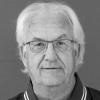Senior onderzoeker Rampen en Milieudreigingen
Publicatie
Publicatie datum
Monitoring rescue workers' health problems following a 'man-made'-disaster in the Netherlands.
Nispen, R.M.A. van, Dirkzwager, A.J.E., IJzermans, C.J. Monitoring rescue workers' health problems following a 'man-made'-disaster in the Netherlands. European Journal of Public Health: 2003, 13(4 sup), p. 49. Abstract.11th Annual Eupha Meeting 'Globalisation and Health in Europe: Harmonising Public Health Practices'. Rome, Italy, 20-22 November 2003.
Background: On 13 May 2000, a firework factory exploded, destroying and damaging 2000 houses in a residential area in the Netherlands, leaving many homeless. Moreover, 18 citizens and 4 fire-fighters were killed. Almost 1000 people were wounded. Among them were rescue workers, who are often called the ‘hidden’ or ‘forgotten’ victims: research on health problems is usually aimed at the direct or ‘primary’ victims. Following the explosion, regional company doctors collected useful information on health problems and absenteeism of rescuers, e.g. policemen, fire-fighters, ambulance personnel and municipal employees. Aim: The objective was to longitudinally monitor disaster-related health problems and absenteeism of disaster workers. Methods: Rescue workers involved in the explosion were identified and marked in a database of regional company doctors. Data on health problems and absenteeism of 1412 rescue workers were obtained electronically. The course of health status and absenteeism one year prior until two years after the disaster was examined. Results: Except for fire-fighters, mobility impairments increased six months post-disaster from 4-6%, and remained steady. Psychological problems rose immediately from 3-6% and levelled off; only for ambulance personnel, the increase was 13%, but they improved after two years (4%). Respiratory problems increased dramatically for municipal workers from 2-16%. In the first half year post-disaster, mean duration of absence almost doubled from 45-81 days. Conclusions: Although the results do not reveal the exact cause (work or disaster related) of health problems and absenteeism for rescue workers, the ability to monitor health status pre- and post-disaster is unique. Consequently, a rise of health problems and absenteeism can be distinguished and related to the disaster. In the aftermath of future disasters, precise registration is needed to deliver appropriate aftercare and to get insight into manifested health problems. (aut.ref.)
Background: On 13 May 2000, a firework factory exploded, destroying and damaging 2000 houses in a residential area in the Netherlands, leaving many homeless. Moreover, 18 citizens and 4 fire-fighters were killed. Almost 1000 people were wounded. Among them were rescue workers, who are often called the ‘hidden’ or ‘forgotten’ victims: research on health problems is usually aimed at the direct or ‘primary’ victims. Following the explosion, regional company doctors collected useful information on health problems and absenteeism of rescuers, e.g. policemen, fire-fighters, ambulance personnel and municipal employees. Aim: The objective was to longitudinally monitor disaster-related health problems and absenteeism of disaster workers. Methods: Rescue workers involved in the explosion were identified and marked in a database of regional company doctors. Data on health problems and absenteeism of 1412 rescue workers were obtained electronically. The course of health status and absenteeism one year prior until two years after the disaster was examined. Results: Except for fire-fighters, mobility impairments increased six months post-disaster from 4-6%, and remained steady. Psychological problems rose immediately from 3-6% and levelled off; only for ambulance personnel, the increase was 13%, but they improved after two years (4%). Respiratory problems increased dramatically for municipal workers from 2-16%. In the first half year post-disaster, mean duration of absence almost doubled from 45-81 days. Conclusions: Although the results do not reveal the exact cause (work or disaster related) of health problems and absenteeism for rescue workers, the ability to monitor health status pre- and post-disaster is unique. Consequently, a rise of health problems and absenteeism can be distinguished and related to the disaster. In the aftermath of future disasters, precise registration is needed to deliver appropriate aftercare and to get insight into manifested health problems. (aut.ref.)

